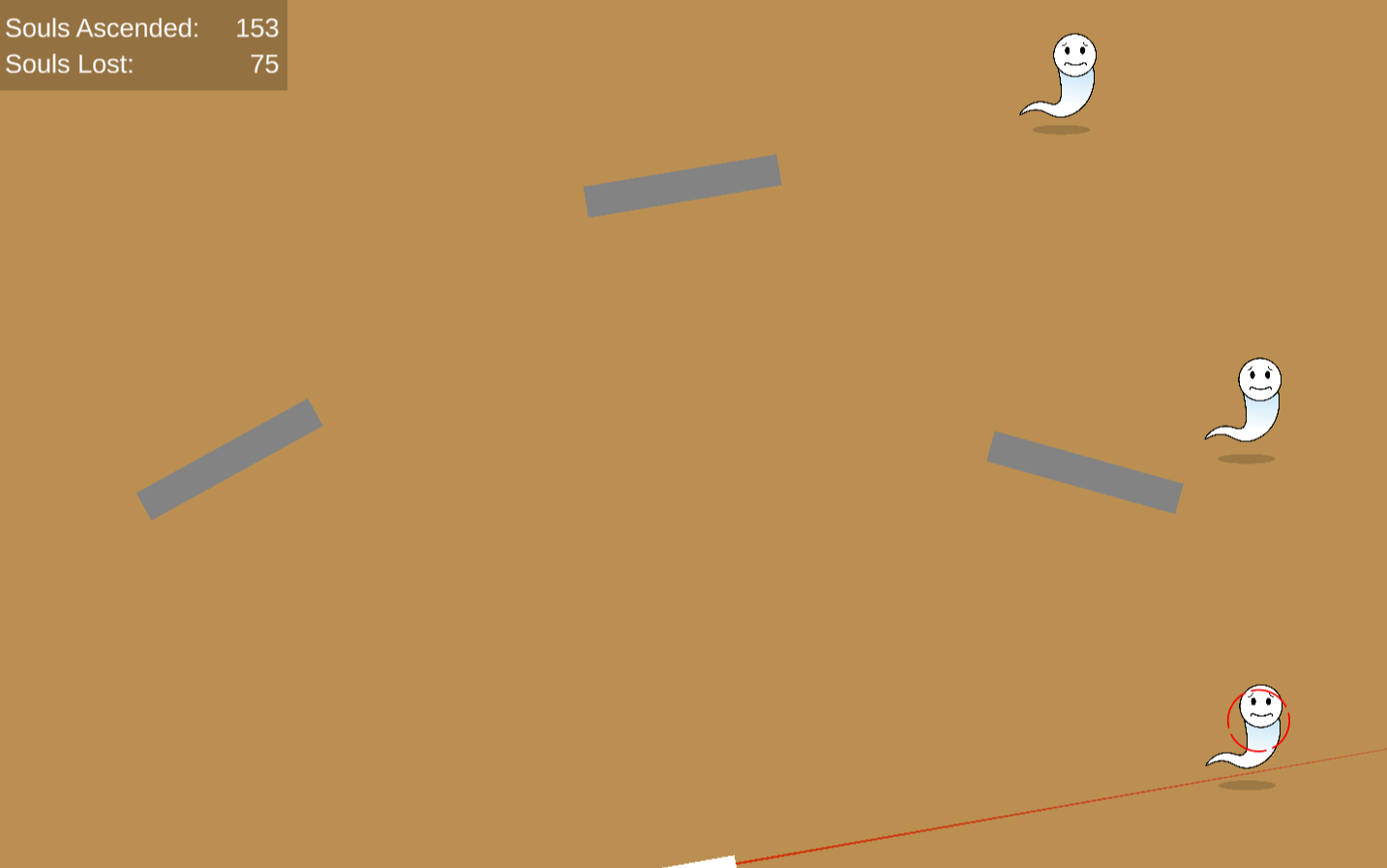Creating a Video Game in 3 Months

Context
AstroClash is a 2D top-down reverse shoot-em up where you protect your retreating comrades with a turret that is automatically firing a magic bullet at them.
I created AstroClash as a member of Tiny Mass Games' second season, which is a community of small teams and solo developers from Massachusetts focused on creating impactful games within tight timelines.
I joined the season just as it started, so I dove headfirst into development on April 1st. The game was released on July 1st, exactly 3 months later.
My Role
I worked solo on this project. I was the game designer and developer.
However, as you'll see, many of the art assets, music, and sound effects were premade assets from 3rd parties.
Development
AstroClash was inspired by the Adobe Flash sniper games I played when I was younger.
I envisioned a game that retained the core mechanics of a sniper game but with a fresh twist — players would take on the role of a pacifist armed with a sniper rifle that automatically fired magic bullets at people.
It's up to you to make sure those bullets didn't hit their targets.
Scope and Challenges
I opted to skip pre-production and began developing the game's features.
My original plan involved taking on almost every aspect of development, from art and UI to sound design. However, as the deadline drew near, it became evident that this approach was unattainable within the given timeframe.

Adapting to the Timeline
Recognizing the need to make efficient use of my resources, I made a crucial decision to incorporate premade assets that I already owned.
This choice not only greatly simplified development but also enhanced the game's overall aesthetic without compromising quality in other areas.
The Importance of Planning
There were several challenges in the final weeks, all stemming from the lack of planning put into the project early on.
For example, I had wanted enemies to be in the game but didn't have an exact plan of how they would work or what they would do. Ultimately, I didn't have enough time to make them good enough, and I made the difficult decision to cut the enemies and opt for static objects instead.
Learnings
I'm extremely proud of AstroClash. Although I'd been developing games for over 8 years at that point, this was the first project that I truly finished (in case you weren't aware, finishing games is extremely difficult).
I learned a lot from this project. If you're interested in the details, be sure to check out the post-mortem video I did right after release!
Summary
Preproduction is Key. Even on a small project like this, preproduction is vital. In the future, I need to spend time planning out features and systems.
Use 3rd-Party Tools Efficiently. Using robust tools to speed up aspects of development that I can't focus on can ensure faster development without sacrificing quality.
Test Early, Test Often. While fairly obvious and often repeated, it's hard to do in practice. This was a good reminder of just how useful it is.
Developer Logs
What I Learned from Making a Game in 3 Months
A brief post-mortem write-up on AstroClash.
Credits
| Designer | Brett Abraham |
| Engineer | Brett Abraham |
| 3D Assets | Synty Studios |
| UI Assets | Michsky |
| Icons | Brett Abraham |
| SFX |
FuseHive
Tom Winandy SFX |
| Music | Sidearm Studios |
| Special Thanks | Tiny Mass Games |